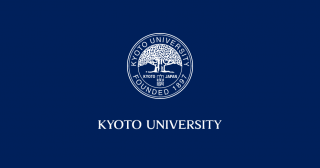From the 1st to the 3rd of August, the 8th Next-Generation Global Workshop took place at Kyoto University with the theme, "Demographic Challenges in the Era of Global Ageing and Migration". These annual workshops were inaugurated in 2008 under the Global Center of Excellence (GCOE) program "Reconstruction of the Intimate and Public Spheres in 21st Century Asia" and are now organized by the Kyoto University Asian Studies Unit (KUASU).
This year's event opened with keynote lectures by professors from Kyoto University and its partner institutions. Then, paper presentations were made by the participating group, which comprised 24 individually selected graduate students plus invited early-career researchers representing 16 countries: South Korea, China, Taiwan, Thailand, the Philippines, India, Nepal, Sri Lanka, Singapore, Indonesia, Malaysia, Qatar, Turkey, France, Germany, and Japan. The presentations were delivered across six sessions over two days, arranged according to topic; e.g., demography, elderly care, social inclusion. Eleven professors who are renowned for their expertise in fields relevant to this year's workshop theme acted as commentators to provide feedback and guidance to each presenter.
The participating early-career scholars shared their impressions of the three-day workshop: "The comments I received about my presentation should certainly benefit my research, going forward," "I am grateful for the many questions and comments received; they will help me to refine my paper," "Receiving feedback from people with different research interests has helped broaden my perspective," "I got a lot of inspiration from not only the formal paper presentation and Q&A session but also casual conversations with fellow participants," "Each country has a unique care system which is embedded in that country's social system. Realizing this point has hugely broadened my world view," "Despite coming from different cultural backgrounds, we were able to understand each other and work together to resolve issues. This experience has made me more optimistic about the future."
On the final day, participants went on a field trip to learn more about the realities of living in a super-aged society, with a focus on senior citizens' labor market participation and the elderly care environment. The trip covered four institutions: 1) "Bāba Service, Pinocchio", a day-care center for children operated by the Nijōjō Office of Kyoto City Silver Human Resources Center, 2) the North Office of Kyoto City Silver Human Resources Center, 3) Kita-ōji, a community-based general care center, and 4) Murasakino, an elderly welfare center.
At Bāba Service Pinocchio, participants watched as staff members, some of them retired nursery teachers, took care of children, and learned about the facility's efforts to accommodate a range of needs, such as providing flexible service hours and allocating staff appropriately. At the next stop, the Kyoto City Silver Human Resources Center's North Office, the workshop participants were given a valuable opportunity to listen to real-life stories of the registered members, who work as housekeeping aides, gardeners, and tourist guides. The visitors appeared to be very impressed by the active roles played by the elderly staff members, and they eagerly asked questions. At the Kita-ōji and Murasakino elderly care centers, group members received warm welcomes and were briefed by staff members on the respective institutions and their day-to-day work before touring the facilities.
Participants appeared to learn a great deal from experiencing distinctive features of the Japanese welfare system through these visits, possibly gaining fresh insights that could further enrich their research. Staff members of the host facilities, for their part, also seemed to benefit from these encounters, with some commenting that interacting with the overseas visitors and learning about their perspectives on care, which reflected a variety of social and cultural backgrounds, enabled them to see their own day-to-day work in an objective light.
At the conclusion of the workshop, the participants promised to maintain the connections established over the three days by keeping in touch via the recently launched online platform of the Kyoto International Consortium for Asian Studies (KICAS), and to work to contribute to further development of international collaborative activities among their institutions, with establishment of credit-transfer and student and faculty exchange programs as possible goals.
Another Global Workshop, organized as part of the "Re-Inventing Japan Project" and "The Top Global University Project", will take place next year.

Presentation by an invited early-career researcher

Group photo in front of the Clock Tower

Lively discussion at the North Office of the Kyoto City Silver Human Resources Center

Listening to a lecture at Murasakino, an elderly welfare center.

Rooftop garden at Murasakino

Another view of Murasakino's rooftop garden

Commemorative group photo at the close of the program





